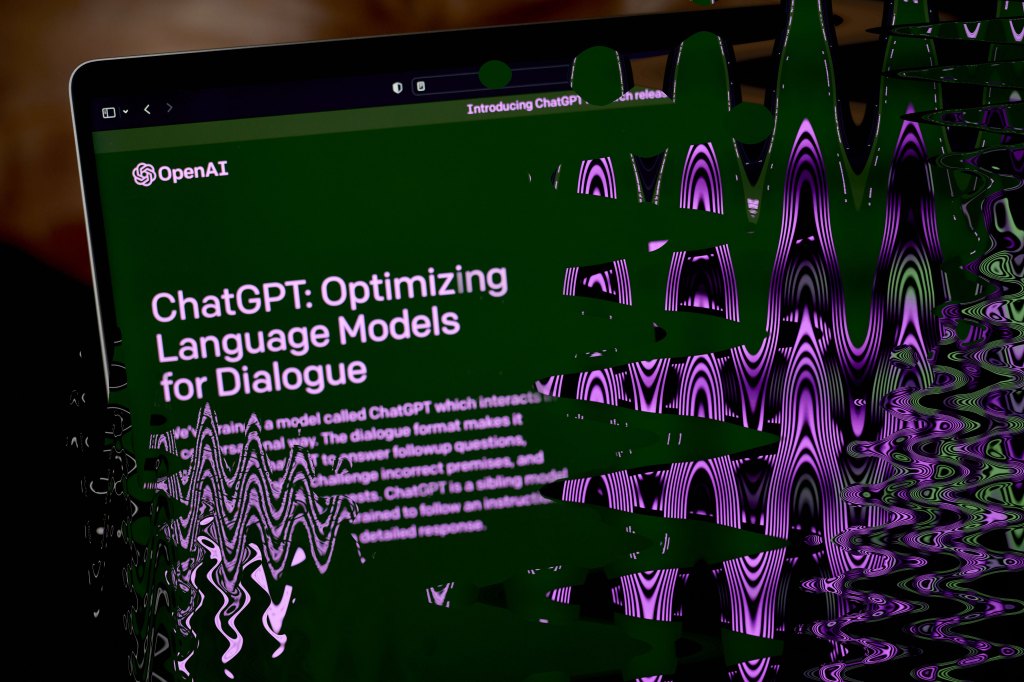ChatGPT Jobs: You better start upskilling because job roles in Australia are now listing ChatGPT as a skill.
A search of the keyword “ChatGPT” on LinkedIn in Australia shows that several firms now consider ChatGPT as an employable skill.
A number of job postings encompassing four different industries – from content management, to healthcare, government administration, and banking – are looking favourably upon candidates who have experience with, or at least familiarity with OpenAI’s hit chatbot.
ChatGPT jobs
The Victorian Electoral Commission lists two openings for IT Operations and IT Systems.
The two roles invite candidates to “Join an amazing friendly team to cement your learning & leadership in Microsoft 365 cloud services, Windows Autopilot/Intune, Microsoft Azure, Kubernetes and Microservices as well as explore ChatGPT/AI in the years ahead.”

Next, banking Giant Macquarie Group lists two openings for a Senior Platform Manager and Program Director for the company’s Corporate Operations Group (COG) in Sydney.
According to its LinkedIn description, the vision of the group is to “provide all employees with the ability to use current and emerging Artificial Intelligence (AI) capabilities, such as Open AI’s ChatGPT, to deliver amazing outcomes for our business, employees, clients and investors.”
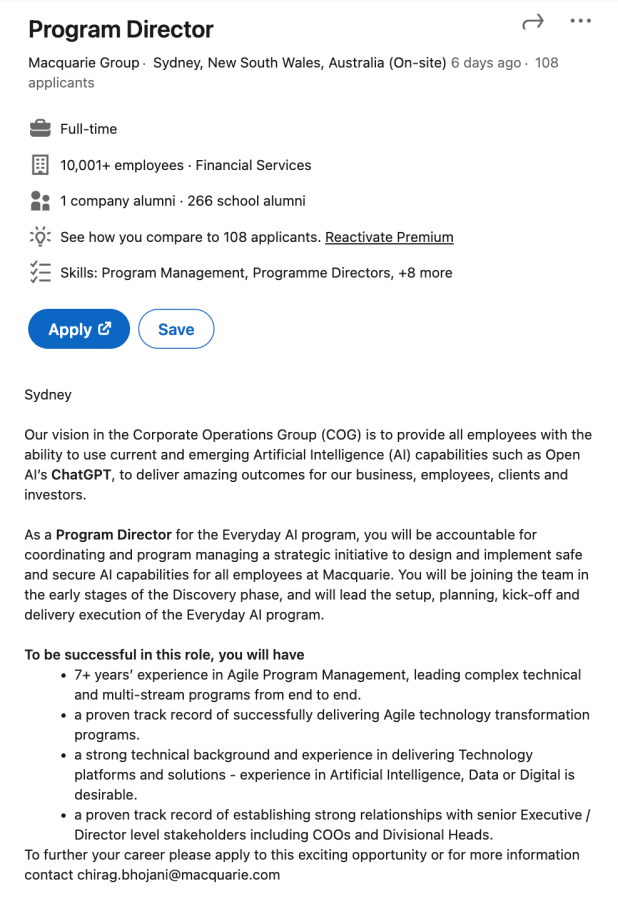
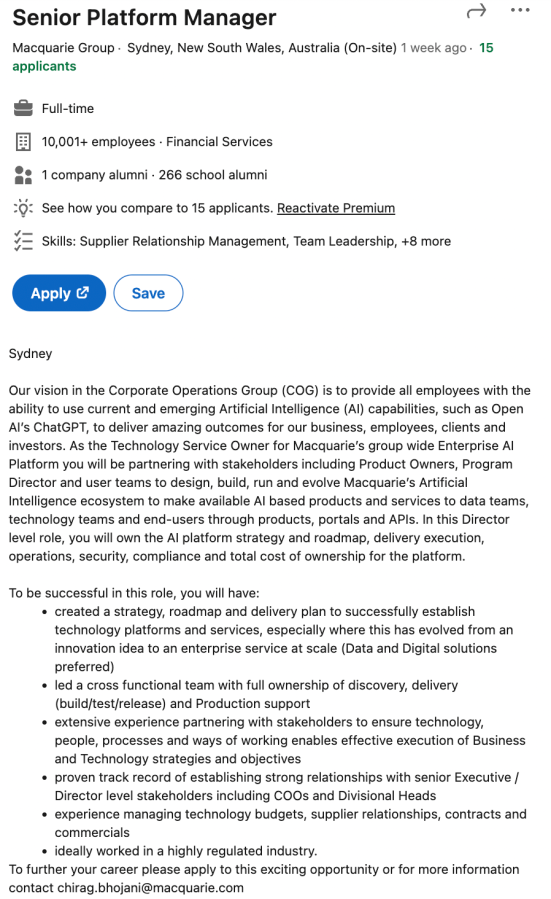
One job opening seeking a Medical Engagement Officer for a telehealth clinic in Blackburn lists as one of several “essential character traits”:
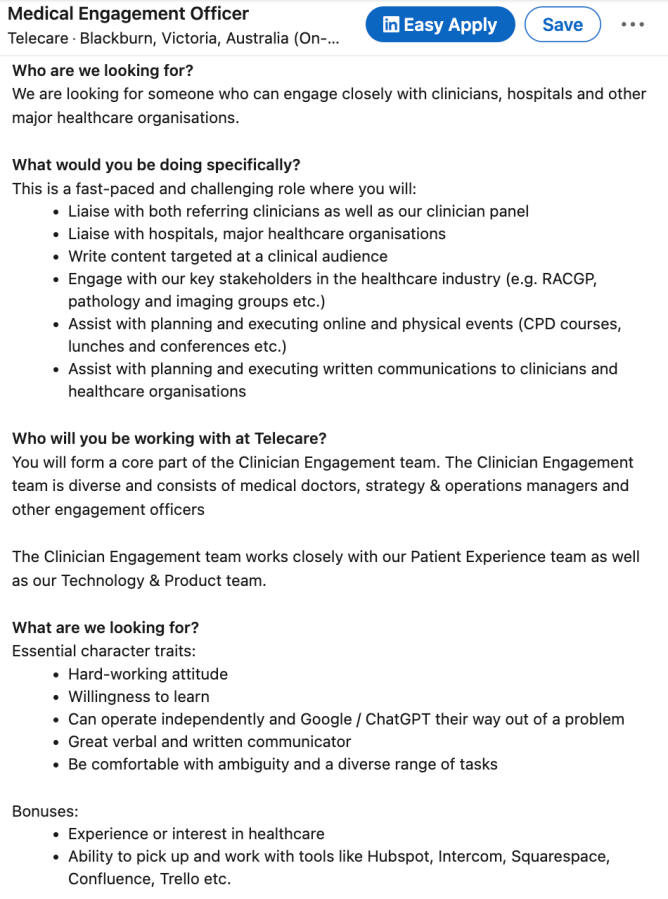
And writers, sorry, but if you can’t beat them, it’s probably a better idea to join them. By ‘them’ I mean ChatGPT, because two content writing roles – one in Melbourne, one in Sydney – need you to have experience with ChatGPT.
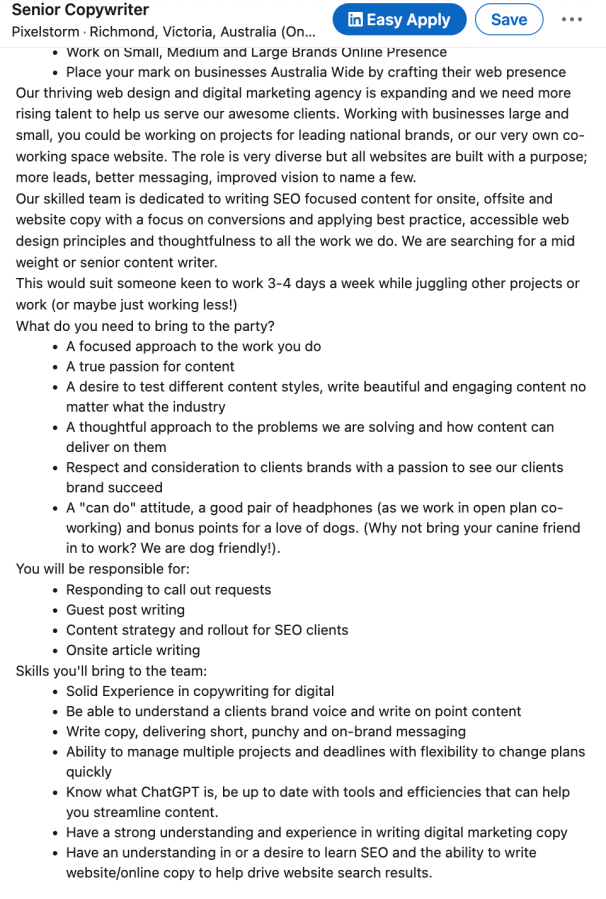
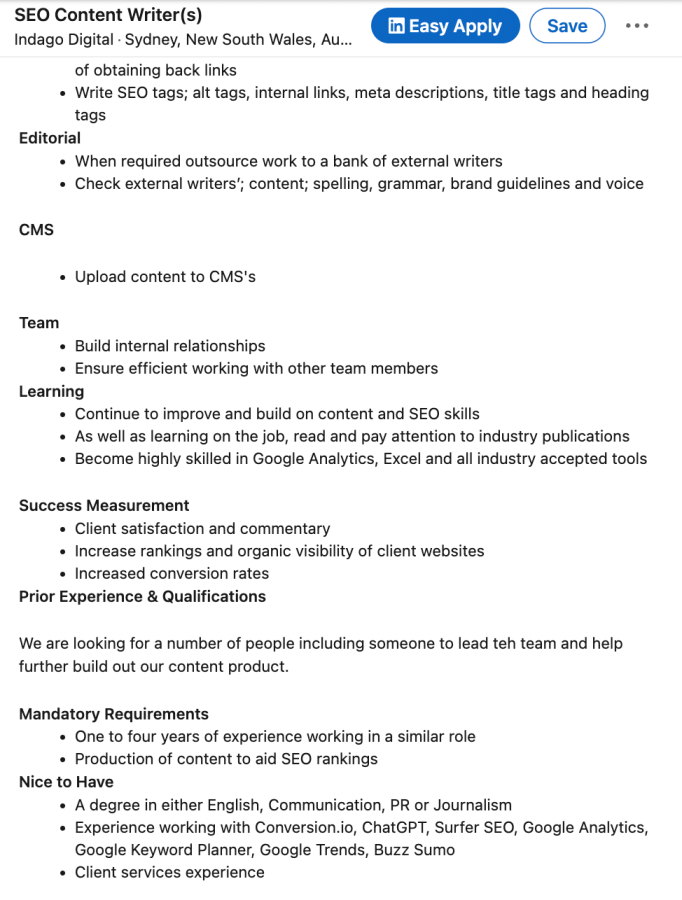
Using ChatGPT at work
If you’re probably already using ChatGPT for work, you’re not alone. A February survey by social app Fishbowl revealed that nearly half of professionals at major firms like JPMorgan, McKinsey, Meta, and others are already using it for work-related tasks – and close to 70% of them are not telling their boss!
So why are Australian schools going the other way?
This means that what the job market is demanding at the moment seems to be at odds with what stance Australian public schools are taking with ChatGPT.
From late 2022 to early 2023, states including Victoria, New South Wales, Tasmania, Western Australia, and Queensland have moved to ban the AI chatbot from public schools.
Private schools, on the other hand, aren’t shying away from it: some private school principals say they will allow students to access the tool, saying educators have a duty to “prepare pupils for the future.”
How will this affect students when it comes to employability? Will there be a shift in schools’ approach to the banning of ChatGPT?
Professor Seyedali Mirjalili, Director at the Centre for Artificial Intelligence Research and Operations at Torrens University, says: The reason why schools and universities are intimidated by ChatGPT is that they are not prepared to embrace and leverage on it. Curriculums, pedagogy, and delivery modes require substantial changes/improvements to accommodate the use of such tools, so the easy solution is to ban it (at least temporarily).
ChatGPT and generative AI overall can provide unique pathways and hyper-personalise learning experience by generating learning resources and assessments on the fly.
Think how much changes require for education providers to enable and facilitate this; and not only that it also requires huge amount of resources and more importantly a massive shift in mindset, he says.





